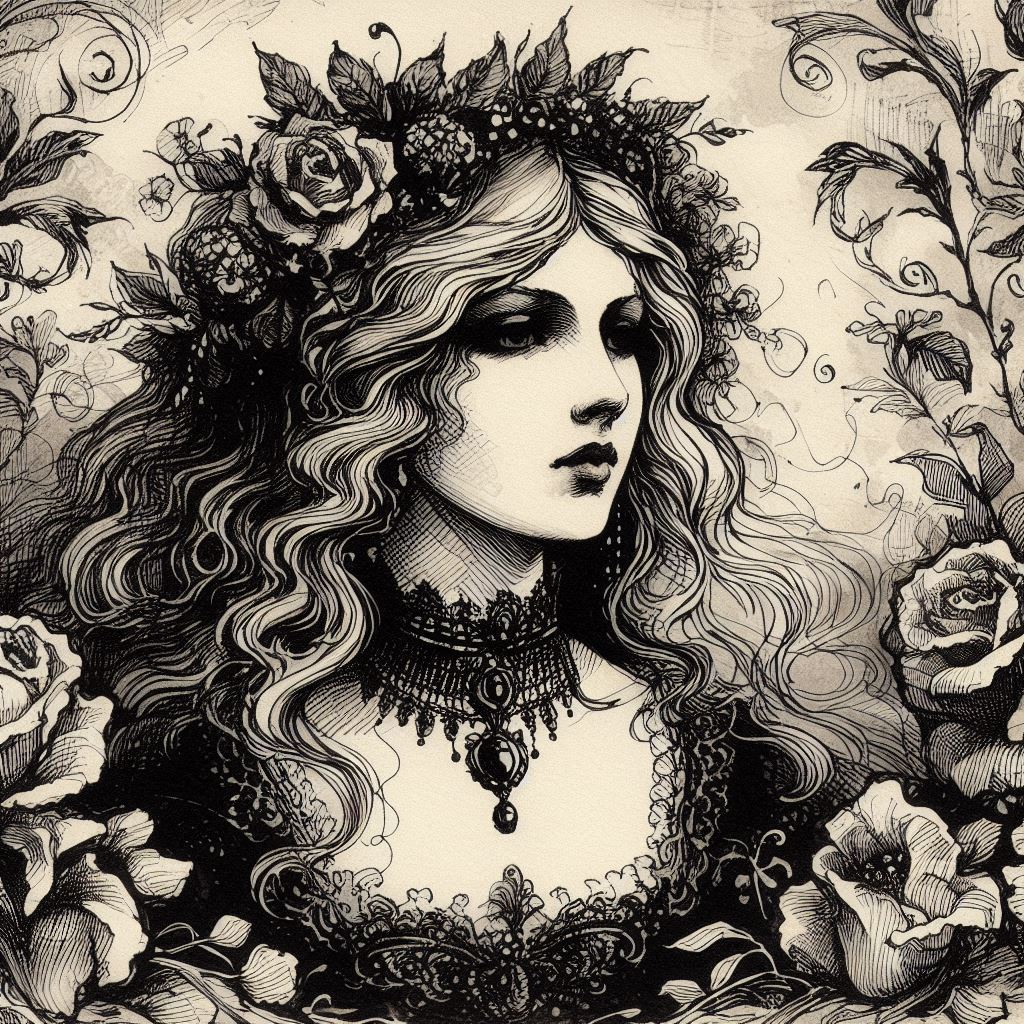Table of Contents
The German Romanticism in Literature
German Romanticism was not merely a literary movement; it was a breath of spirit, a murmur of infinity that swept through Europe at the turn of the nineteenth century. It rose like a dawn after the cold brilliance of the Enlightenment, not to deny reason, but to remind humanity that reason alone could not satisfy the aching heart nor silence the mysterious depths of the soul. In its pages and songs, German Romanticism sought to reunite humankind with nature, with myth, with longing (Sehnsucht), and with the divine shimmer of imagination.

I. A World in Transition
The Romantics were born into a world trembling with change. The Enlightenment had crowned reason king, while the French Revolution had torn down thrones and raised new dreams—and new terrors. Classicism in Weimar, embodied by Goethe and Schiller, offered noble harmony, statuesque clarity. Yet in the hearts of the younger generation, something restless stirred: a thirst for mystery, for wonder, for worlds unseen. From the small town of Jena to the banks of the Neckar in Heidelberg, circles of poets, philosophers, and dreamers gathered, their words weaving the first fabrics of Romantic thought.
II. The Spirit of Romantic Writing
What distinguished German Romantic literature was its refusal to close the book of life at a final page. Everything remained fragmentary, open, like the night sky scattered with stars. The fragment, cherished by the Schlegel brothers, mirrored the infinite striving of the spirit: never complete, always yearning.
Romantic poetry was no longer just verse; it was philosophy, it was music, it was a whisper of religion. The Schlegels spoke of “universal poetry”—a tapestry in which all arts and sciences, myth and reason, merged into one luminous whole. In the trembling of a harp string, in the rustle of leaves, in the silence of midnight, the Romantics saw the face of eternity.
Above all, German Romanticism discovered the soul of nature. To the Enlightenment, nature was a machine; to the Romantics, she was a living being, a companion, a mirror of the divine. Every mountain held secrets, every flower concealed infinity, and in the deep forests dwelt not only creatures but also the symbols of ancient memory.
And with this devotion came irony—an irony that did not mock but revealed the endless play of creation and destruction, the eternal dance of meaning and unmeaning.
III. Voices of the Romantics
From these ideals arose luminous figures whose works continue to shimmer in the literary cosmos.
- Novalis, the poet-mystic, dreamed of the blue flower, that eternal symbol of longing for the unattainable, the marriage of the human heart with the infinite. His Heinrich von Ofterdingen is less a novel than a hymn to yearning itself.
- Friedrich Schlegel turned literature into philosophy, fragments into windows to eternity, and irony into a way of unveiling life’s dual nature.
- Ludwig Tieck played with the borderlands of fairy tale and reality, where laughter becomes philosophy and every story reflects its own telling.
- E.T.A. Hoffmann, with his uncanny tales, explored the secret chambers of the mind, where dreams shade into nightmares, and the human soul reveals its fractured depths.
- Brentano and Arnim, in their Des Knaben Wunderhorn, resurrected the songs of the people, giving voice to an older, folkloric soul of Germany.
- Heinrich Heine, both child of Romanticism and its sharp critic, wrote with lyric sweetness and ironic sting, preparing the way for modernity.
Each voice sang differently, yet all were bound by the same melody: the pursuit of infinity in the finite, of light in the shadow, of unity in the fragment.
IV. Philosophy and the Infinite
German Romanticism was never only art; it was philosophy written with the pen of poetry. Schelling’s philosophy of nature, Fichte’s exaltation of the self, Hegel’s dialectic—all bled into Romantic literature, for the Romantics believed that truth could not be spoken in one language alone. Philosophy became poetry, poetry became philosophy. Both were pathways to the same horizon: the infinite dwelling within the human spirit.
V. The Eternal Legacy
The Romantics left behind not only books, but a way of seeing. Their spirit breathed into music—the lieder of Schubert, the sonatas of Schumann, the operas of Wagner. Their fascination with the unconscious anticipated the revelations of Freud. Their irony and fragmentation prefigured the games of postmodern literature.
Yet their legacy is double-edged. The exaltation of the folk spirit nourished not only poetry but also dangerous nationalism. Still, what endures from German Romanticism is its eternal reminder: that human beings are not mere machines of reason, but beings of longing, imagination, and mystery.
Conclusion
German Romanticism was not a doctrine, but a dream. It was a dream of reconciliation: of man with nature, of reason with imagination, of the finite with the infinite. Its poetry glows with yearning, its prose shimmers with paradox, its philosophy hums with music. To read the Romantics is to step into a world where every flower conceals a secret, every fragment reflects infinity, and every heartbeat echoes with the eternal question: What lies beyond?


No responses yet